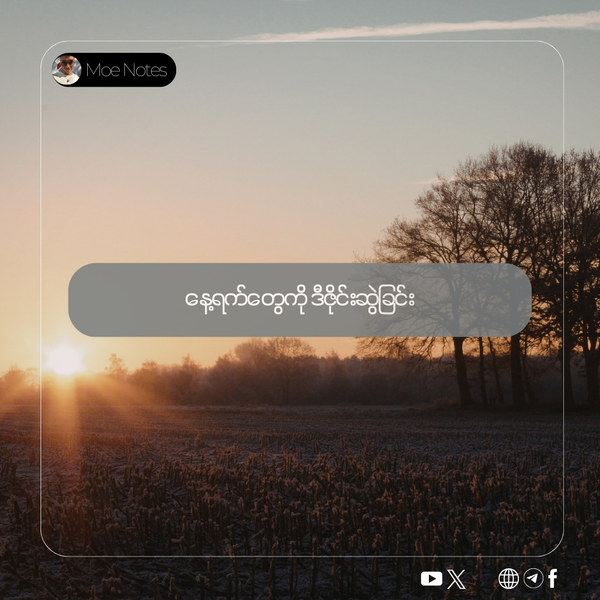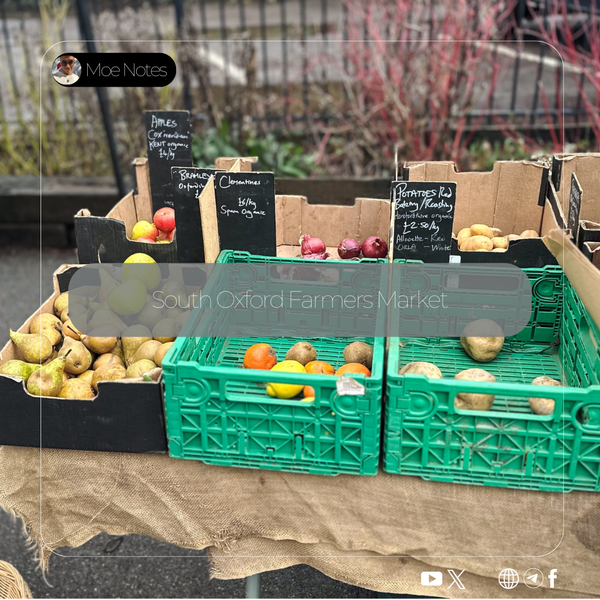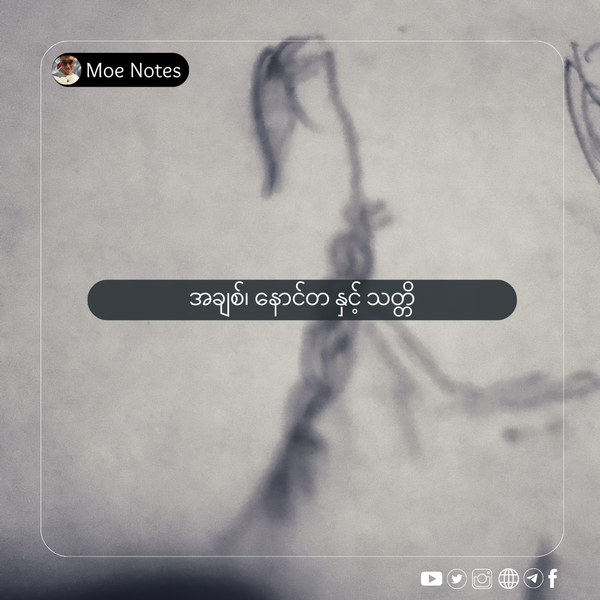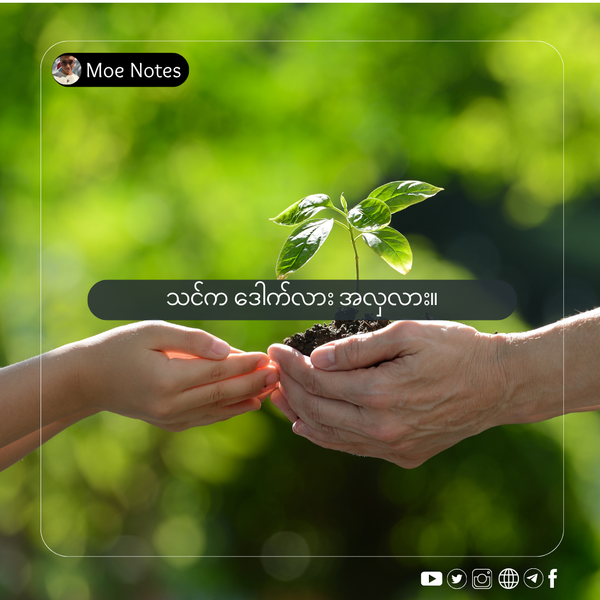From Yangon to New York: An OSSD Student's Guide to Studying Nursing in the US
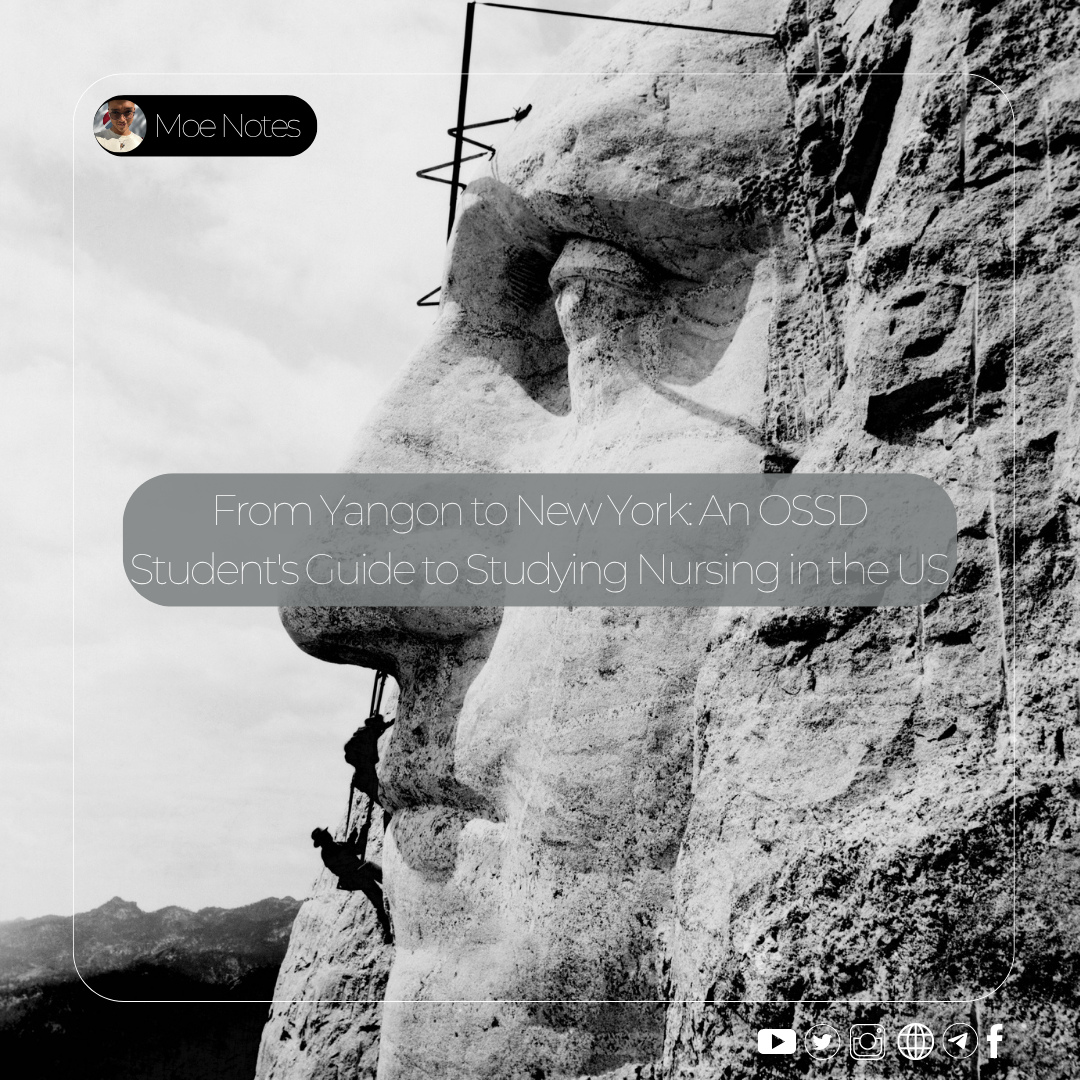
This article is also available in [Burmese]
Today, I have invited a friend to join us. He is a student who has successfully made the journey to the US. He's a bit older than me and grew up in the Myanmar school system, where he was forced to memorize every word. He had very little freedom—his life was a simple circuit between school and home. But he did have one thing: the desire for something more.
This is the story of how he made it to the US to study. (Each part of the interview will be detailed below).
Part 1: The Journey From a Broken System
Me: Did you always plan to come to the US when you were younger? How did this journey start?
Friend: When I was in 10th grade, I knew I didn't like the Myanmar education system. This system of "memorize this to answer that"—I truly hated it, especially in Biology. I was interested in the subject, but I hated that for the exam, if they asked a certain question, you had to write back a specific sentence, word for word. I told my parents back then, if I don't get good enough grades to get into the university I want, I will go abroad. I ended up getting into YUFL (Yangon University of Foreign Languages).
I wanted to study English in-depth, but my marks weren't high enough for the English major. So, I put all my effort into the language I did get. By my second year, my family already wanted to send me abroad. They knew that the living standard in Myanmar did not match the life I wanted for myself. They knew that even if I graduated from YUFL and got a job, my income and my future would not align with my ambitions.
Then COVID-19 happened, and the coup happened. The backup plan of going abroad if I didn't get the university I wanted became the main plan.
Me: Let's go back in time a bit. Were you a good student or a bad student growing up?
Friend: I was considered a good student until about 8th grade. I was good at memorizing. I was trained in the Myanmar school style, which is "memorize this for that question." I wasn't familiar with any international education system. But around the end of 8th grade, I couldn't keep up anymore.
My method of memorizing wasn't based on knowledge. I didn't remember things as concepts. It was just rote memorization. "After season D, season A will come." That's it. When I could no longer rely on that method, I was already in 9th and 10th grade. I realized two weeks before my matriculation exam that my entire way of studying had been wrong. I felt a deep regret.
My family told me, "If you want to cancel, just cancel. Stay back another year if you want." But I was so disgusted with the education system that I couldn't imagine doing it for another year. So I decided I would just go abroad no matter what, and I took the exam with the attitude of "whatever I get, I get."
Part 2: The Application - A Strategic Case Study
Me: Many students like us were stuck in the Myanmar system and now feel like they are too far behind. How did you make the switch to a Canadian Grade 12 (OSSD) program?
Friend: I was scared. I had no confidence. I wondered if I would be able to understand foreigners, if I would have to study English all the time. I grew up with "memorize this, answer that." But when I actually started, I realized that the things you learn in this system are practical and useful in the real world. I was motivated not just to go abroad, but to understand this new way of learning.
Me: What was your English level like, and how critical is it?
Friend: Because English is the international language, I knew from elementary school that I had to master it. I had a great teacher who I started learning with from 5th grade. We used international textbooks, which were full of color, and I would always go to her place to study. Because of that foundation, my English was already at a level most universities would accept.
If your English is not strong, you will face problems at every single step. From the IELTS test to the immigration counter when you first arrive. When you get to class, you won't be able to understand your professors, and you'll fall behind. Even simple things like registering for classes, which you have to do by speaking to an advisor or using the university website, become impossible if you can't communicate confidently.
I had a problem with my MMR (Measles, Mumps, Rubella) vaccine. I had my first dose but planned to get the second dose in the US during the Easter break. Two weeks before I was due to travel, without any email or announcement, I was suddenly kicked out of all my online university courses. A professor emailed me to ask if I had withdrawn. It was only by speaking to the university that I found out I had to get the second dose immediately to be re-enrolled. If you don't have strong English and don't check your emails constantly, a small problem like this can derail your entire semester.
Me: Why did you choose the OSSD at CIC, specifically? And how did you choose your major?
Friend: I was actually aiming for the US and some European countries like Poland. I didn't choose CIC because I wanted to go to Canada. But it turned out that with the OSSD, I didn't have to take some of the other tests that universities required; my OSSD grades were enough.
As for my major, I didn't have one at first. I knew I was scared of Biology from my 10th-grade experience, so I decided to face my fear and chose it as a subject. In the OSSD system, it was fine—I didn't have to memorize word for word, I just had to understand the concepts. Once I overcame that biggest hurdle, I chose Nursing. It felt like a career where I could make a real difference, and it was important to me.
Part 3: The Visa Gauntlet - An Insider's Guide to the US Interview
Me: How did you handle the US visa application?
Friend: My family was in a hurry, and the US embassy in Myanmar wasn't offering appointments. So, I had to travel to a third country to do the interview. The interview itself is only about 3 minutes long, but in that short conversation, you have to convince the officer of three things: that you are a genuine student, that you can afford it, and that you will return to your own country.
I passed on my first try, but many people fail two or three times. Of the people who interviewed on the same day as me, very few passed. I even had to show my OSSD certificate.
Me: What's your advice for students preparing for the visa interview now that the refusal rate is so high?
Friend: It's not about which country you apply from; it's about your individual case. You have to make your case strong. Don't just memorize answers from an interview service. You need a solid, logical reason for why you are going to study. They can spot a lie. You need to be confident. If your hands are shaking and you can't speak clearly, they will be suspicious.
You can do this yourself. You don't need to pay an agent thousands of dollars. As long as your case is truthful and logical, and you believe in yourself, it's not that difficult. So many people in Myanmar rely on agents for everything—from choosing a school to booking a flight. But you have to learn to do these things yourself. If you don't, you will suffer from culture shock when you go abroad.
Part 4: Life in New York - The Reality of a Student's Budget
Me: What's the reality of living costs? How do you manage your accommodation and food budget?
Friend: My weakness is that I don't know how to cook. So for someone like me who loves Burmese food, it's not very convenient.
For accommodation, a good single room in a shared apartment costs at least $800-$850 per month. You can share a room with another person to cut the cost in half, to around $400-$450. But I tried that, and it wasn't worth it. The kitchen was tiny and crowded, the apartment was not clean, and there were cockroaches. It was like living in a low-quality tenement in Myanmar. I ended up eating out more, so I didn't save any money. My advice is to pay for a single room if you can.
For food, in my first semester, I was spending around $400 a month. I was buying a lot of snacks and eating out. But now I've discovered the Food Pantry at my university. With a student card, you can get free groceries. I can get about 10 items, and near the end of the semester, they give even more—bags of vegetables, potatoes, tomatoes, two cartons of eggs, bread. This covers my breakfast completely and has cut my food budget in half, to around $200 a month. A student who knows how to cook can save a lot of money.
Me: What about part-time work?
Friend: In New York, you can legally work 20 hours a week, on-campus only. The minimum wage is $16/hour. It's difficult to find a job, and you can only apply after your first semester.
- Editor's Note: Many students work illegal "cash-in-hand" jobs off-campus to make more money. This is a violation of your student visa. If you are caught, you can be deported. It is a high-risk path that is not recommended.
Part 5: A Final Word of Advice
Me: Do you regret your journey?
Friend: Not at all. I've had new experiences, been to a new place, met new people. Everything is new. I'm getting to do things I never even dreamed of. The people in Myanmar are kind, but they are stressed and worn down by the difficulties of daily life. The people here are calmer. So their mindset is different.
Me: What is your final message to young people in Myanmar?
Friend: My message is: just do it. If you have the chance, go. Don't just stay in your comfort zone out of fear. A young person's nature is to want to be free—to come home when you want, to live how you want, to wear what you want, to eat what you want. In the current situation, you can only get that by going abroad. So please, go. If you want to know more, you can ask.
